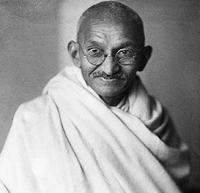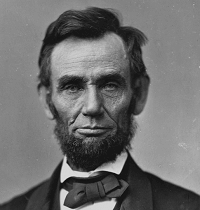Leadership EssayThe role of Leadership is one of the most critical aspects of management because it assists individuals or businesses in increasing efficiency and attaining objectives. Leadership can mean different things to diverse writers. In general, Leadership is defined as the art of influencing other people to ensure that they work willingly and enthusiastically towards the attainment of goals for the group/organization. The term "leadership" refers to the act of influencing the actions of formal or informal group members in the process of goal setting and accomplishment. A leader is someone whose magnetic personality draws individuals for a purpose. In today's highly competitive environment, leadership abilities are essential to personal and professional growth. 
Good leadership skills are required by people at the professional, personal and social levels. Personal Leadership allows us to identify our strengths, desires and talents. It is about knowing what we would like to achieve in life, understanding what success looks like for us, what our priorities are, and how we can achieve the goals we set no matter the opinions of others, what they believe, say, or do. Personal Leadership allows us to improve our lives and helps us to shape our future. Effective Leadership is crucial in running a company. In most organizations, management is more focused on the ability to make decisions. They believe that a quick and intelligent decision will aid in the company's success. They do not realize that the implementation of these decisions is just as crucial as taking those decisions. If the implementation isn't done correctly, there won't be any outcomes. As the saying goes, it's easier said than done. In the same way, making a choice does not change anything. Rather, figuring out how you can accomplish the task efficiently and effectively will assist the organization in reaching its goals. Leadership is vital in implementing decisions in a timely and efficient manner. Leadership Styles of Different Types-1. Democratic LeadershipSubordinates play a role in the decision-making process in this kind of Leadership. This type of Leadership is focused on the contributions of subordinates. But, the ultimate responsibility for their actions and decisions is on the shoulders of the leader. It is regarded as one of the most popular ways of leading. 2. Transformational LeadershipThis kind of Leadership focuses on influencing the performance of others by inspiring them. A leader who is transformational inspires others by setting goals and encouraging them to improve their productivity. 3. Team ManagementThe leader of a team involves everyone in the project. The leader inspires his team members to put in the effort while simultaneously striving to meet the established goals and develop their professional skills. 4. Strategic LeadershipThis kind of style of Leadership is characterized by a leader who is the head of the company but doesn't have the same views as the top management. He's a part of the entire team at every level. He is an intermediary between the desire to explore new possibilities and being realistic. 5. Democratic LeadershipThis style of Leadership concentrates on the leader. In this, the leader has complete power. He makes decisions at his discretion, without consulting his team. He is in constant contact with his team members and expects immediate action from them. Only he is accountable for his actions. There is no reversal whatsoever in this manner. The leadership style is often criticized. 6. Visionary LeadershipThis kind of leader is aware of the strengths and requirements of his staff members. He works together to get the desired results by setting a vision for achievement. 7. Coaching LeadershipA coaching leader continuously guides and supervises employees of the team in order to improve the performance of his team. The team members are encouraged by the coach to strive more. This type of Leadership is greatly appreciated. 8. Convenient ManagementIf the team is performing less work, a guided leader can assist the team members in doing their tasks efficiently by giving directions periodically. If the team is a well-operating group, then the manager would be able to take a less strenuous approach to work. 9. Leadership in Cross-Cultural ContextThis kind of Leadership occurs when working with people from diverse backgrounds. A lot of leaders in different organizations across the America United States are cross-cultural because individuals from various backgrounds are employed in the workplace. 10. Laissez Faire LeadershipIn this kind of management style, the group members feel empowered. All members of the team can work as they please, and they are not influenced by the leader. It isn't considered to be a good leadership style. 11. Transactional LeadershipThis type of Leadership is characterized by transactions. In this, team members are honored and recognized for their ability to implement the leader's ideas and decisions. 12. The Charismatic LeadershipIn this style, the leader takes the time to alter the values of trust and the behaviour of his followers to encourage them to perform better. Qualities of a Good Leader1. VisionPerhaps the most valuable quality that a leader has is vision, i.e., being able to perceive the larger image of where the company or team is heading, as well as what it is capable of and what will be required to achieve the goals. 2. InspirationAs crucial as having a clear vision is the capacity to communicate the vision to others and inspire them to be excited about it. This is about maintaining a positive but real-world presence in the company, keeping team members focused and enthusiastic, and making them remember the purpose they're working towards. 3. Strategic & Critical ThinkingA successful leader can consider the entire organization or team they're working with and develop a clear awareness of its strengths, potentials, weaknesses, and dangers (and how they can assist or overcome these). They'll be able to course-correct as needed and be able to assess their work to figure out how it fits into the overall strategy and goals of the organization. 4. Interpersonal CommunicationLeaders who are successful are able to communicate with others in a manner that is authentic. It doesn't mean that you need to be outgoing or a social butterfly. There are many exceptional leaders who are self-described as introverts! Instead, it's about your ability to show compassion, engage in active listening, and establish meaningful relationships with your colleagues and subordinates. 5. Authenticity & Self-AwarenessOne of the best methods to be a successful leader is to become self-aware enough to know your strengths and weaknesses and then develop an authentic style of Leadership that's exactly who you are and how you perform your best job. You'd like to be the most effective person to lead and not try to conform to the mould set by others. Be aware of the aspects that define you as what you are, which will eventually result in your developing an authentic leadership style. 6. Open-Mindedness and CreativityA leader is someone who is open to new ideas, perspectives and possibilities. Leadership requires the willingness to make changes and bring new perspectives to the table. Leaders should be able to listen, observe and be open to changing course when needed. Creativity is also an essential quality as it enables a person to find novel solutions to problems. Following the same path, again and again, can lead to monotony and the state of being stuck in a loop. Creativity helps in looking at the problem from fresh perspectives and developing solutions accordingly. 7. FlexibilityLeadership is also about being flexible and agile when necessary. You will encounter unexpected roadblocks and large obstacles. If you are faced with them, be ready to stop, reassess, or take on a new path. Rigidity on the part of leaders can cause frustration in the entire team and demotivate the employees. Leaders who are open to change and adapt to the business environment will inspire others to do the same. 8. Responsibility & DependabilityA leader must have a sense of responsibility and dependability. These traits can be displayed in your work and your relationships with others. You must show your team members that you are capable of taking on more work, following through, supporting them through difficult times, and helping them reach their shared and individual goals. 9. Patience and TenacityGood leaders know how to see the big picture, regardless of whether it is a strategy, situation or goal. It is crucial to be able to overcome any obstacles and persevere without becoming discouraged or defeated. Patience is indeed the key to success. Being patient in the face of problems can help everyone in the team remain calm and work towards a constructive solution to the problem. 10. Continuous ImprovementTrue leaders understand that perfection is not possible. There is always room to improve at all levels of the organization, from the individual to the team to Leadership. Leaders are always available to help their team members, improve their skills, and identify and implement strategies to help the organization grow. Perhaps most importantly, they should be able to look within and identify areas in which they need to improve. Introspection is a great quality that must be possessed by any good leader. Examples of Good Leadership
Mahatma Gandhi, also known as the father of the nation, was a great example of a leader. He believed in non-violence and was a strong advocate of peace. He was a brilliant leader and played a very crucial role in helping India win its independence back. This was probably the most extraordinary struggle for independence. He was able to achieve freedom without violence. 
Abraham Lincoln was another prominent leader. He was most notable for ending slavery in the United States. As a result, he made himself many enemies. He was, however, a man of immense self-confidence. His fight against slavery was an inspiration. Sir Winston Churchill was an Englishman of great patriotic spirit. He was also the leader of Britain during the Second World War. He continues to inspire people across the globe. He was a great asset to Britain and fought against Nazi Germany. In a time of despair, his great communication motivated the whole country. 
Mother Teresa was born Anjeze Bojaxhiu in 1910. Her unwavering dedication to helping vulnerable groups has earned her a place on the list of the world's greatest leaders. She led a community that worked tirelessly to open orphanages, clinics, and other services around the globe, including in India. Her efforts to end poverty earned her a Nobel Prize. Alexander the Great, also known as the "Man Who Conquered the World", is widely considered to be the greatest military leader ever. His leadership style and great presence of mind, victories, and vision are still being celebrated in the history books. He was born in 356 BC. By the time he was 33, he had ruled the largest empire in history, stretching from Greece to Egypt to India. He was the King and Commander of Macedonia. He was able to unify many Greek city-states. He was unbeaten in combat until he died from malaria in 323 BC. ConclusionIn conclusion, Leadership is essential in almost every area of life. Good Leadership is the key to success. Lousy Leadership, on the other hand, is a guarantee of failure. Good leaders make the world turn. The world has seen some exemplary leaders who are remembered to date, and hopefully, such iconic personalities will continue to be born in every era!
Next TopicEssay on Narendra Modi
|
 For Videos Join Our Youtube Channel: Join Now
For Videos Join Our Youtube Channel: Join Now
Feedback
- Send your Feedback to [email protected]
Help Others, Please Share









